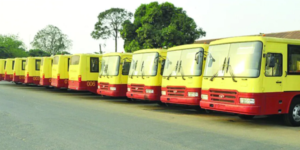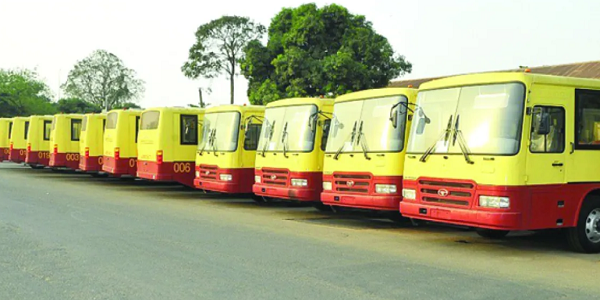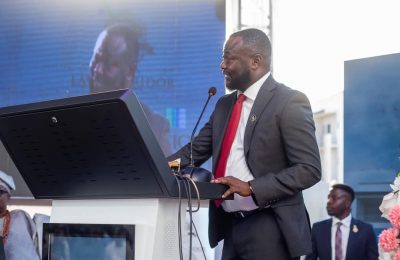


In Oyo State, Omituntun is the new street code. Literally, Omituntun means fresh water. It is an euphemism for a new dawn, a new way of doing things in the Pacesetter State.
It is more than mere wish. It encompasses the essence and philosophy of a new narrative to governance, that Governor Seyi Makinde (popularly called GSM), symbolises.
The “new culture” has percolated everywhere. The latest sector witnessing this fresh gust of air is transportation, where the governor seems committed to taking it from its largely pristine or pedestrian level to a more modern system that, “could respond to the yearning of a growing modern city”.
In the main capital, the micro-mini sedan taxis, called Micra, had held sway for eons. In fact, metro taxis are more known in Ibadan for their basal attitude to the very rudiments of traffic regulations. It is common knowledge to see cab operators using their hands for trafficator signs, and a bedlam may ensue by merely denying them to turn right before you simply by a wave of hand.
But that pedestrian attitude may be on the way out of the sprawling city should Makinde succeed with the new transportation system.
Not only will it revolutionise transportation in the aging city that for a long spell occupied an enviable place, or space, as Africa’s literary capital. It will, upon full mainstreaming, be a link to the transformation of the transportation sector by sister Southwestern states of Lagos, and Ogun, which are on the same page on maximising the economic mileage of their proximity.
This week, the Oyo State Government would launch the multi-billion naira Omituntun transit, with about 110 maxi-buses (large capacity buses), that would, ultimately, be operated from four transit terminals.
The four terminals, according to the state government, are at Iwo Road, Old Ife Road, Challenge and Ojoo.
For those conversant with Oyo State, the four terminals are the major transit exit hubs in the state; and together, according to the government, they account for close to two million-passenger traffic monthly.
Oyo State is a gateway of some sort, providing a critical access way not only to other Southwest states, but also to the North and the East.
While Iwo Road and Challenge may somewhat be categorised as meant for intra-city shuttle, the ones to be cited at Old Ife and Ojoo, may be categorised as intercity terminals, because of their strategic locations of being exit points, to the South and North.
Instructively, anytime this week, Makinde is expected to kick off commercial operation as two of the terminals – Challenge and Ojoo – are ready, while the remaining two, await completion.
Inspecting the level of work at Eleyele, the operational headquarters, in readiness for the take-off, last Thursday, Makinde reiterated the mainstreaming of modernisation into intra and inter-city shuttles in Oyo. He stated that after the pilot stage, the shuttle would be introduced to other far-flung areas of the state.
From past, to present
Oyo State, and the capital, Ibadan, according to Wikipedia, is the third most populous city in the country and formerly the second most populous city in Africa. It is bordered to the north by Kwara State, to the east by Osun State, and to the south by Ogun State and the Republic of Benin. With a projected population of 7,840,864 in 2016, Oyo State is the fifth most populous in Nigeria. Oyo State is blessed with a land mass of 28,454 km2, largely tropical rainforest.
The state’s first encounter with mass transit initiative could be traced to the Second Republic, when the Chief Bola Ige government introduced the Trans City Transport Company (initially corporation), in the early 80s. The TCTC, which was ubiquitous with midi-buses (medium buses), being the main artery for intercity shuttles while the maxi (mass transit buses), were essentially deployed in intercity, reaching Edo State and covering the South.
The TCTC experiment was soon jettisoned after the eclipse of the Second Republic and transportation in the state went into limbo, with transport unions calling the shots and turning themselves into overlords of the city.
Makinde’s new foray is an extension of his ambitious reforms aimed at repositioning public transportation and ensuring that the state residents and especially visitors are no longer captives to their cars as they are made to provide alternatives to okada (commercial motorcycles) and micro mini taxi operators, which have become largely rickety and unsafe for commercial shuttle activities, especially in an emerging modern state inching gradually to becoming another megacity in the Southwest.
Making the money count
Very early in the life of the administration, Makinde had introduced the Oyo State Park Management Agency. It took over from the transport unions, thereby consolidating the revenue accruable from the sub-sector, which has gone to reposition the state’s IGR.
The introduction of the Omituntun buses, therefore, are seen as the consolidation of the reforms which would reposition the road component of the transportation sub-sector and make the bus shuttles attractive to the bustling throng of patrons who for long have yearned for a credible alternative that is neat, safe, modern, affordable and reliable.
The Chief Press Secretary, Taiwo Adisa, said the people of Oyo can take the governor’s words that the buses would provide a world class transportation alternative to the bank.
Speaking with this correspondent at the weekend, Adisa said the Makinde government is plugging the loopholes and making the people’s taxes to work for them.
He said the government has pioneered a number of firsts within this first term and the people are themselves seeing the difference as the dividends of democracy is getting to far more communities and constituencies than it has ever done.
He said the transformation of the transportation sector is one that would reposition Oyo State’s transportation system and soon, the sub-sector would occupy an enviable spot in the country.
“Oyo State in doing all these does not seem to copy any state in the country in the provision of affordable, modern, safe and reliable means of commuting to its people. We are determined to professionalise and revolutionise transportation in Oyo State, to move it from what is – largely pedestrian, to what we and indeed all our people could be proud of,” Adisa said.
The governor’s aide said in the reform that is being envisaged, rickety buses and taxis would be phased out and “anyone visiting the state from within or outside the country would be proud that the governor is making their money count for them.” Continue Reading







